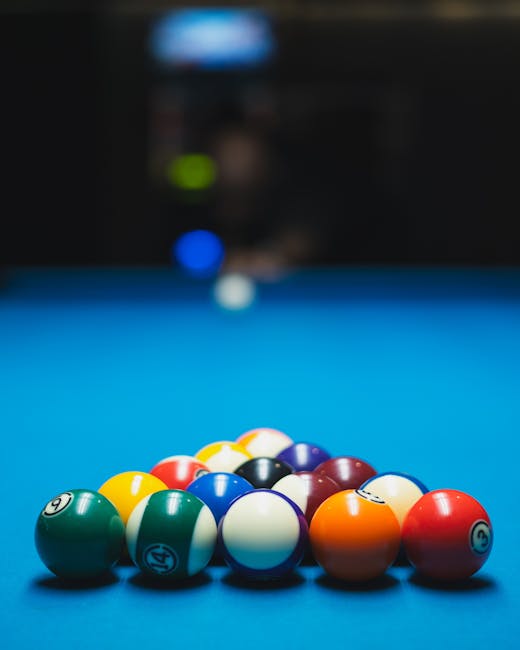When it comes to the longevity of a resurfaced pool, there are a few key factors to consider. Let’s dive in and explore how you can ensure your pool stands the test of time!
First and foremost, proper maintenance is crucial. By keeping up with regular cleaning, balancing the water chemistry, and addressing any repairs promptly, you can extend the lifespan of your resurfaced pool.
Additionally, choosing high-quality materials and getting the job done by experienced professionals is vital. Investing in a durable pool surface and relying on the expertise of skilled technicians will help maximize the longevity of your resurfaced pool.
So, if you’re looking to enjoy many years of swimming fun, it’s essential to prioritize maintenance, select premium materials, and work with reputable professionals for pool resurfacing. Your pool will thank you with years of splashes and smiles!
The Longevity of a Resurfaced Pool: A Comprehensive Guide
Resurfacing a pool is a significant investment that not only enhances the aesthetic appeal but also improves the overall functionality and lifespan of the pool. However, it is essential to understand the factors influencing the longevity of a resurfaced pool to ensure its durability and long-term performance. In this comprehensive guide, we will delve into the key aspects that contribute to the longevity of a resurfaced pool, from the materials used to the maintenance practices employed. Whether you’re a pool owner or considering resurfacing your pool, this article will provide you with the knowledge and insights you need to make informed decisions.
Choosing the Right Pool Resurfacing Material
An imperative factor that significantly impacts the longevity of a resurfaced pool is the choice of materials. There are several options available in the market, each with its own set of advantages and disadvantages. Let’s explore some popular pool resurfacing materials and their impact on longevity:
1. Quartz Pool Finish
Quartz pool finishes have gained popularity due to their durability and long-lasting aesthetic appeal. These finishes consist of a mixture of quartz aggregate, pigments, and white cement, providing a smooth and luxurious surface. With its resistance to staining, etching, and fading, a quartz pool finish can stand the test of time. Regular maintenance and proper water chemistry are essential to ensure the longevity of a quartz pool finish.
2. Pebble Tec Pool Finish
Pebble Tec pool finishes are known for their natural and textured appearance. Made of small pebbles and cement, these finishes are highly durable and resistant to chemical imbalances, stains, and fading. The non-slip surface also adds an additional level of safety. When properly cared for, a Pebble Tec pool finish can last for decades. It is essential to follow the manufacturer’s guidelines for maintenance and regularly test and balance the water chemistry.
3. Diamond Brite Pool Finish
Diamond Brite pool finishes offer a blend of durability, aesthetics, and affordability. Composed of quartz, polymer-modified cement, and colored quartz aggregate, Diamond Brite finishes provide a glossy and textured surface. With proper care and maintenance, Diamond Brite finishes can last up to 15 years or more. Regular cleaning and monitoring of the water chemistry are crucial to extend the longevity of a Diamond Brite pool finish.
Proper Pool Maintenance for Longevity
Aside from choosing the right resurfacing material, proper pool maintenance plays a crucial role in extending the longevity of a resurfaced pool. Here are some key tips to ensure your pool stays in optimal condition:
1. Regular Cleaning and Debris Removal
Maintaining a clean pool is essential to prevent the buildup of dirt, debris, and algae, which can damage the resurfaced surface over time. Regularly skim the pool to remove leaves and other floating debris and use a pool brush to clean the walls and floor. Additionally, vacuum the pool regularly to eliminate any remaining debris.
2. Proper Water Chemistry
Maintaining balanced water chemistry is vital to prevent damage to the pool surface and equipment. Test the water regularly and adjust the pH, chlorine, and alkalinity levels accordingly. Improper water chemistry can lead to corrosion, staining, and other issues that can impact the longevity of the pool resurfacing.
3. Timely Repairs and Upgrades
Addressing any repairs or upgrades promptly is essential to prevent further damage and extend the lifespan of the pool. Whether it’s fixing a minor crack or upgrading outdated equipment, regular inspections and timely interventions can save you from costlier repairs in the future.
Pool Covers and Enclosures: Enhancing Longevity
In addition to sourcing the right resurfacing materials and practicing proper maintenance, using pool covers and enclosures can significantly contribute to the longevity of a resurfaced pool. Here are a few advantages of incorporating pool covers and enclosures:
1. Reducing Chemical Usage
A pool cover or enclosure can help minimize evaporation, reducing the need for adding chemicals to maintain water balance. By retaining heat and reducing water loss, you can prolong the life of the pool resurfacing material while also saving money on chemicals.
2. Preventing Debris Accumulation
Pool covers and enclosures act as barriers, preventing leaves, dirt, and other debris from entering the pool. By minimizing the accumulation of debris, you reduce the risk of damage to the resurfaced pool surface, resulting in improved longevity.
3. UV Protection
Pool covers and enclosures shield the pool from harmful UV rays, which can degrade the resurfacing material over time. By reducing exposure to UV rays, you can maintain the integrity and longevity of the pool surface.
In conclusion, ensuring the longevity of a resurfaced pool requires careful consideration of materials, proper maintenance, and the use of pool covers and enclosures. By selecting high-quality resurfacing materials, practicing regular maintenance, and implementing preventative measures, you can enjoy a beautiful and long-lasting pool for years to come. Remember to choose the right material for your specific needs, adhere to regular cleaning and maintenance routines, and consider the additional protection provided by pool covers and enclosures. With these strategies in place, you can maximize the lifespan of your resurfaced pool and make the most out of your investment.
Key Takeaways: Longevity of a Resurfaced Pool
1. Regular maintenance is crucial for ensuring the long-lasting lifespan of a resurfaced pool.
2. Properly balancing the chemicals in the pool water helps prevent damage to the resurfaced surface.
3. Avoid using abrasive cleaning tools that can scratch or damage the pool’s surface.
4. Regularly inspect the pool for any signs of cracks or peeling, and address them promptly to prevent further damage.
5. Applying a high-quality sealer and protective coating can help prolong the lifespan of the resurfaced pool.
Frequently Asked Questions
When it comes to the longevity of a resurfaced pool, there are a few key factors to consider. Here are some commonly asked questions and answers to help you understand how to extend the lifespan of your resurfaced pool.
1. What factors can affect the longevity of a resurfaced pool?
Several factors can impact the lifespan of a resurfaced pool. The quality of the materials used, the skill of the installation, and the ongoing maintenance and care all play a role. Choosing durable materials, hiring experienced professionals, and following proper maintenance guidelines can help ensure your resurfaced pool lasts longer.
Additionally, environmental factors such as excessive sun exposure, harsh weather conditions, and high levels of chemicals can also impact the longevity of a resurfaced pool. Regular inspections, maintaining proper water chemistry, and protecting your pool from harsh weather can help prolong its lifespan.
2. How long does a resurfaced pool typically last?
The lifespan of a resurfaced pool can vary depending on various factors, but on average, you can expect it to last around 10 to 15 years. However, with proper care and maintenance, a well-constructed and properly resurfaced pool can last even longer. Regularly assessing your pool’s condition, addressing any issues promptly, and following a maintenance routine recommended by professionals can help maximize its lifespan.
It’s important to note that the type of pool surface you choose can also impact its longevity. Different materials have different lifespans, with some being more durable and resistant to wear and tear than others. Consulting with a pool professional can help you choose the best resurfacing material for your specific needs and budget.
3. Can I extend the lifespan of a resurfaced pool?
Yes, you can take steps to extend the lifespan of a resurfaced pool. Regular maintenance is key to keeping your pool in optimal condition. This includes balancing the water chemistry, cleaning the pool regularly, and addressing any issues promptly. Making sure the pool is properly winterized and protected during periods of non-use can also help prolong its lifespan.
It’s also important to avoid harsh chemicals, excessive sun exposure, and prolonged periods of neglect. Treating your pool with care, following recommended maintenance guidelines, and addressing any repairs or resurfacing needs in a timely manner can all contribute to extending its longevity.
4. What signs indicate that a resurfaced pool may need attention?
There are several signs that may indicate your resurfaced pool needs attention. Cracks in the surface, flaking or peeling of the finish, rough and uneven areas, or water loss despite proper maintenance are all red flags that something may be wrong. Additionally, if you notice stains that cannot be easily removed or a consistent decrease in water quality, it may be time to have your pool inspected and potentially resurfaced.
Regularly inspecting your pool for any signs of damage or deterioration can help you catch issues early on and address them before they become more severe. Consulting with a pool professional can provide valuable insights and guidance if you’re uncertain about the state of your resurfaced pool.
5. Is resurfacing the only solution for an aging pool?
Resurfacing is not the only solution for an aging pool. Depending on the severity of the issues and the overall condition of the pool, other options may be available. For minor surface imperfections, spot repairs or patching may be sufficient to restore the pool’s appearance and functionality.
In some cases, improving the pool’s overall structure or upgrading certain components can also help extend its lifespan without the need for a full resurfacing. It’s important to consult with a pool professional who can assess the specific needs of your pool and recommend the most suitable course of action.
Summary
So, let’s sum it all up! The article discussed the longevity of resurfaced pools. First, we learned that resurfacing a pool can extend its lifespan by protecting it from damage. Additionally, we found out that choosing the right materials, like plaster or pebble finishes, can make a big difference. Proper maintenance, such as regular cleaning and balancing the chemicals, is also crucial for keeping a resurfaced pool in good condition. Overall, resurfacing a pool is an effective way to make it last longer and enjoy more fun in the sun!

